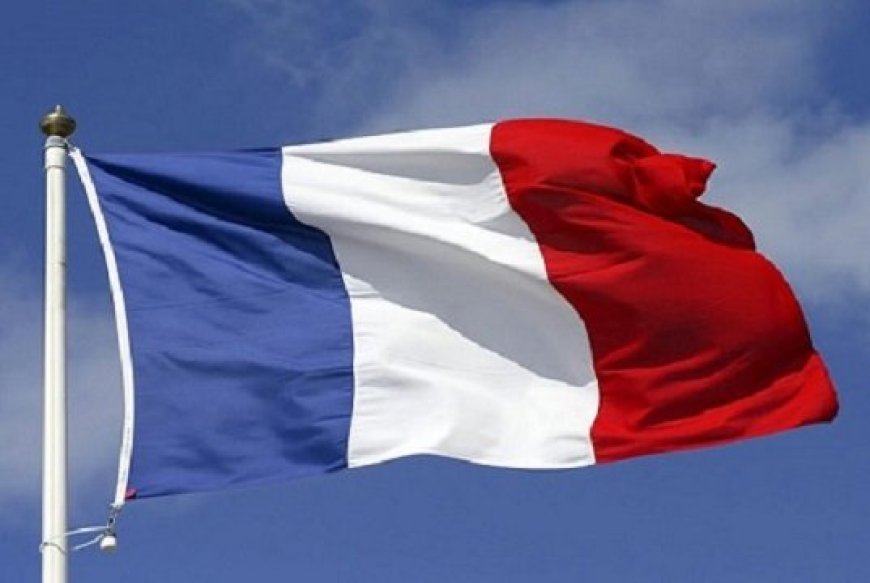Algeria Strikes Back: The Fall of France’s Neo-Colonial Illusion
The latest diplomatic crisis—sparked by Paris’s covert actions and Algiers’ unflinching response—marks a historic shift. Not since independence in 1962 has Algeria taken such a bold and public stance against France’s interference. It is not just symbolic resistance; it is the exercise of sovereign will in a post-colonial age. France’s furious reaction betrays its discomfort with this new reality: the era in which it could dictate terms without fear of consequence is fading fast.

Algeria Strikes Back: The Fall of France’s Neo-Colonial Illusion
The diplomatic row between Algeria and France is more than a passing quarrel—it is the clearest sign yet of France’s waning authority on the global stage. The historical wounds between the two nations run deep: Algeria, subjected to over a century of systematic colonial violence, humiliation, and domination, has never forgotten. Its painful but determined struggle for liberation has forged a national ethos defined by dignity and sovereignty. In confronting Paris, Algeria is not merely asserting itself—it is forcing France to reckon with the crimes of its past and the illusions of its present. This demand for a formal apology for decades of brutality has long stood as an obstacle to reconciliation, and it remains a fundamental point of contention.
The latest diplomatic crisis—sparked by Paris’s covert actions and Algiers’ unflinching response—marks a historic shift. Not since independence in 1962 has Algeria taken such a bold and public stance against France’s interference. It is not just symbolic resistance; it is the exercise of sovereign will in a post-colonial age. France’s furious reaction betrays its discomfort with this new reality: the era in which it could dictate terms without fear of consequence is fading fast.
By: A. Mahdavi
A Crumbling Empire in Denial
Algiers’ decision to confront Paris has exposed the fragile underbelly of French power in Africa. For decades, France has maintained influence across the continent through economic entanglements, military partnerships, and covert political pressure—a system many have rightly described as neo-colonialism. Algeria’s defiance constitutes a direct challenge to this paradigm, and in doing so, it has triggered what may be the beginning of a structural unraveling of France’s post-colonial empire.
The incident has already led to significant diplomatic fallout, but also to wider regional implications. France’s perceived loss of control is mirrored by the boldness of Algiers, which now acts with a confidence previously unseen. Paris, accustomed to acting with impunity, is shaken—not just by words, but by actions. Algeria no longer tolerates French interference in its judicial, economic, or security affairs, and Paris is quickly realizing that it can no longer act without provoking serious consequences.
This fear was visible last year when France broke with diplomatic neutrality and supported Morocco’s sovereignty over parts of Western Sahara, a direct affront to Algeria. That move was not just a geopolitical gamble—it was a signal that France is desperate to retain influence, even at the cost of regional stability. The result, however, has been a further deterioration of trust, and a growing perception that France is no longer a credible or neutral actor in North Africa.
The End of an Illusion?
The crisis deepened with reports of French intelligence operatives being arrested on Algerian soil. This was no longer a question of diplomatic friction—it was a security scandal, one that laid bare the dysfunction of French foreign policy and intelligence operations. The failure to act discreetly, the misreading of Algeria’s internal climate, and the sheer boldness of French covert activity suggest that Paris is out of step with regional realities. For a former colonial power once renowned for its strategic sophistication, this is a humiliation.
It also reveals a broader institutional decay. France’s intelligence infrastructure appears increasingly incapable of understanding, let alone influencing, developments in its former sphere of influence. It is no longer the omnipresent overseer of African affairs—it is now prone to error, overreach, and entrapment. The implications are profound: this may well mark the beginning of France’s structural retreat from the Sahel and the broader Maghreb.
Notably, Paris now finds itself isolated—not just in Algiers, but even in Washington. Recent years have witnessed growing rifts between France and the United States in both security and political cooperation. Had the two been more aligned, American backing might have helped Paris navigate the crisis. Instead, Algeria has benefited from the discord, asserting itself more confidently than ever in the face of an increasingly hesitant France.
What emerges from this episode is a new regional order—one in which post-colonial nations no longer passively accept the terms set by former imperial powers. Algeria’s stance could well serve as a model for others across the Global South seeking to reclaim sovereignty and reshape their external relations. For France, however, it is a sobering lesson: nostalgia is not a strategy, and imperial legacy is no longer a source of power—it is a burden, and a dangerous one at that.
Conclusion
The long-term effects of this crisis will likely be transformative. Algeria has positioned itself as a credible regional power, capable of resisting Western interference and charting its own course. With it comes both opportunity and risk—new partnerships, new leverage, but also the challenges of economic retaliation and diplomatic isolation. Yet if Algeria succeeds in navigating this terrain, it may open the door to a new, post-Macron order—one in which sovereignty, rather than subordination, defines relations between North and South. The sun may not have set on France entirely, but it now casts longer and darker shadows than ever before.













































